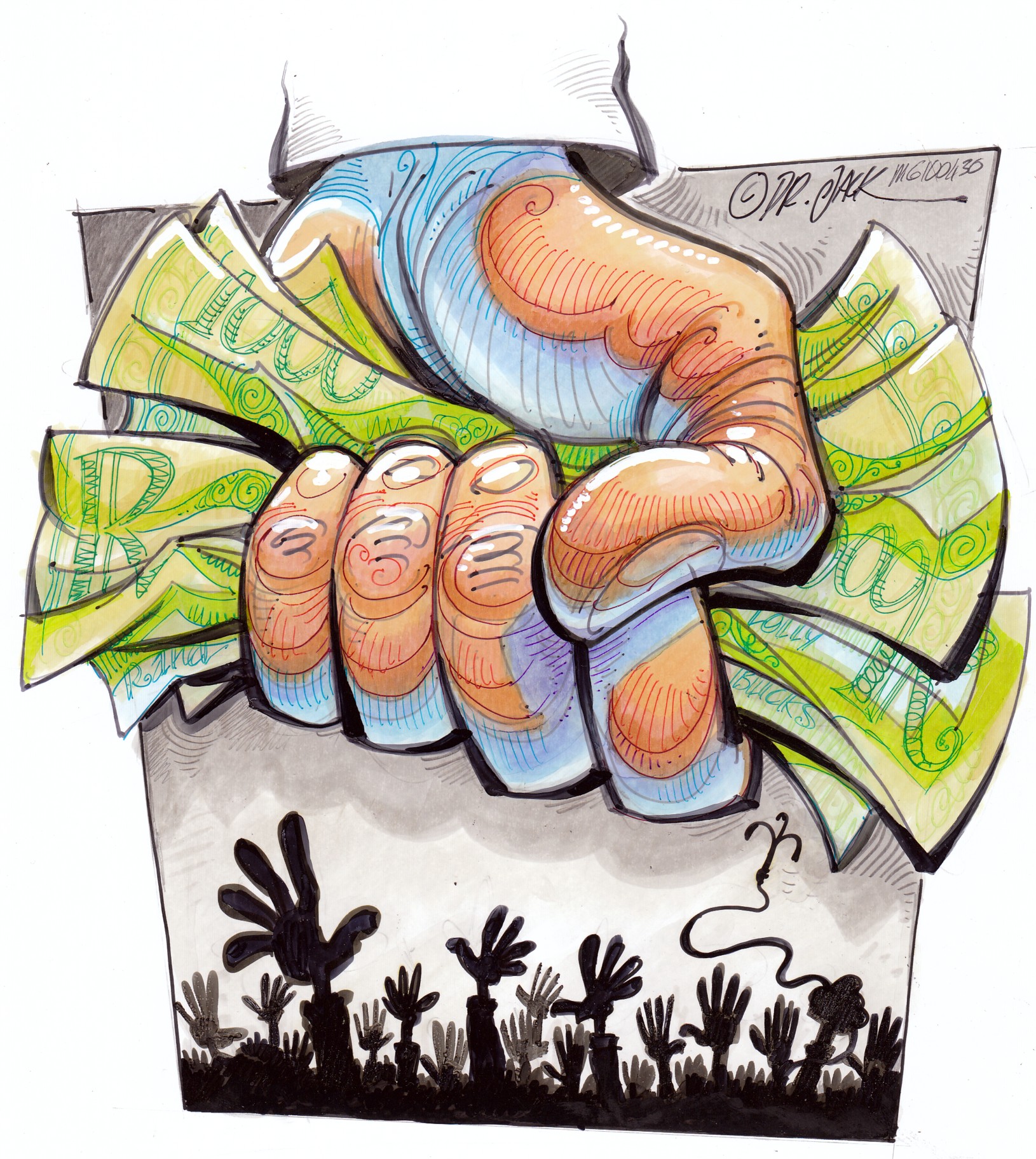My friend Boris was distraught. He was clutching R2000’s worth of crumpled banknotes and muttering to himself.
The money, it turns out, was a rejected bribe.
He had never heard of anything like it: a driving test inspector — a police official! — refusing to sell a licence for cash!
“R2000 is a month’s wages!” Boris kept yelling with well-lubricated Russian indignation. “What kind of country is this!?”
The answer: an unusually clean one.
A fact obscured by the media’s justified handwringing over why Home Affairs took 15 years to get a clean audit is just how remarkable even such a modest achievement is for a middle-income country.
It’s often been said that South Africa doesn’t deserve to be part of Brics — the grouping of the world’s five strongest developing powers — because of its undiversified economy, anaemic growth and low foreign direct investment.
But there is another, much better way in which the country differs from its counterparts: according to Transparency International, South Africa is massively less corrupt than Brazil, Russia, India or China.
Scoring a very respectable 54th place out of 176 on the most recent index, South Africa came second only to Botswana on the African mainland, and a whopping 100 places above Russia.
Two things make this achievement especially notable. First, that 32 of the 53 places ahead of it were predictably crammed with the world’s richest countries: Western Europe, US and Canada, Australia, New Zealand and Japan. At least 10 further places went to rich, tiny principalities and autocratic city states barely the size of Joburg — the likes of Bhutan, Brunei, Bahrain and Macau.
And second, that South Africa was one of only three other natural resource-endowed democracies in the top 55 (the others were Norway and Botswana). This is significant because, according to the resource curse, countries heavily dependent on commodity exports like oil and minerals have a very high chance of being either autocratic (Saudi Arabia), highly corrupt (Nigeria), or both (Russia). In that context, South Africa may not be up there with Germany, but it’s punching way above its weight.
All this might come as a shock to the millions of South Africans whose other national sport is moaning about how corrupt and incompetent their government is. That’s not entirely unwarranted. From arms scandals to shady tenders, pension scams to qualified audits, opening a newspaper can feel like stepping on a (dodgily procured) landmine of gloom. What’s more, such stories often gain traction by feeding into racist conceptions that under black management, the country has gone downhill.
Yet the clearest reason why South Africa is relatively clean but feels so corrupt to many of its own citizens is the country’s other stand-out asset: its press — one of the world’s freest and most intrepid.
Even in the wake of the mooted (and now doomed) media law, Reporters Without Borders not only ranked South Africa above all the Bric countries on its annual index of media freedom, but even ahead of Spain, France and Italy. Quick to report on abuses of power, South Africa’s independent and combative watch-dog journalists are at least partly responsible for keeping corruption at bay.
None of this is to suggest that the country should rest on its laurels. Indeed, over the last few years, South Africa has slipped in a few of these indices. Vast sums of government funds continue to be stolen by officials and the politically connected, or spent taking them on fact-finding missions to Disneyworld, and for every thwarted Boris, there must be a fair number of minibus taxi drivers who manage to buy their licences without a glitch.
Yet it is a far cry from the reality in most of the “developing world” — including the much lauded giants Brazil and China — where giving bribes is a daily tax, no more unusual than tipping a car guard.
In my own country, it’s virtually impossible to enter university (payments of up to R160 000 to admissions officers are common practice), open a business, deal with any police officer or government official, or sometimes even make it through airport customs, without greasing a few palms along the way.
In fact, living in South Africa can get quite frustrating for those of us used to the magical power of a well-placed $100 bill.
Recently told by a Home Affairs clerk that a change to my visa status would take up to six weeks to process, I looked meaningfully at my wallet and asked if there is anything that I could do. He blankly recommended coming back in a month and a half.
So the next time South Africans read a headline like “Home Affairs gets first clean audit in 15 years”, they should certainly feel irked that it’s taken this long to get there.
But not without feeling proud about just how rare even a relatively clean government — not to mention a press free enough to snark about it — is in the world, and particularly among South Africa’s peers.



